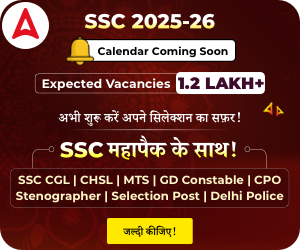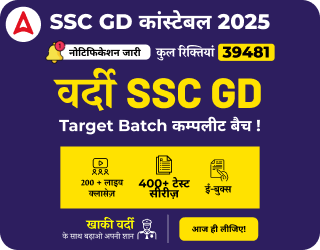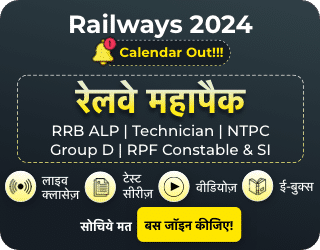Table of Contents
The SSC JE Syllabus 2025 has been released on the official website of SSC on ssc.gov.in. Candidates planning to apply for the exam must be familiar with the Junior Engineer syllabus for effective preparation. The syllabus is divided into two papers: Paper I, a General Ability Test (GAT), and Paper II, a subject-specific test. Both papers are now Computer-Based Examinations. The Paper 1 exam was conducted in June 2025, and the results will be announced soon on ssc.gov.in.
SSC JE Syllabus 2025
SSC JE Exam is a competitive exam that requires the candidates to have a strong base in the specialized engineering subjects i.e. Civil, Mechanical, or Electrical subjects to succeed. Paper I will test the candidate’s knowledge of General Intelligence and Reasoning, General Awareness, and Mathematics. Whereas Paper II will test the candidate’s knowledge of the specific engineering discipline that they have chosen to apply for. The Staff Selection Commission (SSC) has made some minor changes in the negative marking of the SSC JE 2025 Exam.
SSC Junior Engineer Syllabus 2025: Overview
The SSC JE exam consists of two stages Paper 1 and Paper 2. You can get the SSC JE Syllabus 2025 detailed overview here. The article below provides you with the details SSC JE Syllabus for both Paper I and Paper II.
| Phases of the SSC JE Examination | SSC JE Syllabus (Civil/Electrical/Mechanical) | Marks |
|---|---|---|
| Paper-1 (200 MCQs) | General Intelligence & Reasoning | 200 |
| General Awareness | ||
| General Engineering (Civil & Structural), (Electrical & Mechanical) | ||
| Paper-2 (100 MCQs) | Part A: Civil & Structural Engineering OR | 300 |
| Part B: Electrical Engineering OR | ||
| Part C: Mechanical Engineering |
SSC JE Exam Pattern 2025
To prepare for SSC JE 2025 exam one needs a thorough understanding of the detailed SSC JE exam pattern 2025. With the knowledge of the SSC JE Exam Pattern 2025, candidates can create a study plan that aligns with the distribution of topics and the difficulty level of questions in each section. SSC JE Exam Pattern will help aspirants plan their preparation effectively. The SSC JE Exam Pattern 2025 for Paper 1 and Paper 2 are mentioned below in detail.
| Particulars | SSC JE Paper-I Highlights | SSC JE Paper-II Highlights |
|---|---|---|
| Exam Mode | Online (Computer-based test) | Offline (Pen-and-paper-based test) |
| Number of Sections & Subjects | 3 Sections: General Intelligence & Reasoning, General Awareness, General Engineering (Civil & Structural/Electrical/Mechanical) | 1 Section: General Engineering (Civil & Structural/Electrical/Mechanical) |
| Type of Questions | Multiple Choice Questions (MCQs); 4 options, 1 correct answer | Descriptive questions |
| Exam Duration | 2 hours (120 minutes) | 2 hours (120 minutes) |
| Number of Questions | 200 | 100 |
| Total Marks | 200 | 300 |
| Language of Paper | English and Hindi | English and Hindi |
SSC JE 2025 Syllabus
Here is a breakdown of SSC JE Syllabus 2025, along with the topics covered in each subject. Candidates must once go through the table to know what are the important topics that need to be studied before appearing for the exam. The SSC JE 2025 Syllabus comprises General Intelligence and Reasoning, Civil Engineering, General Awareness, Mechanical Engineering, and Electrical Engineering, each covering various topics. A detailed structure of the SSC JE 2025 Syllabus has been provided below. Candidates are advised to go through the same and start preparing for their examination.
General Intelligence and Reasoning:
| Category | Topics |
|---|---|
| Classification | Analogy, Coding-Decoding, Paper Folding Method, Matrix, Word Formation |
| Logical Reasoning | Venn Diagram, Direction and Distance, Blood Relations, Series |
| Reasoning Types | Verbal Reasoning, Non-Verbal Reasoning |
| Arrangement & Visualization | Seating Arrangements, Space Visualization |
| Problem-Solving & Analysis | Problem-Solving Analysis, Judgment, Decision Making |
| Cognitive Skills | Visual Memory, Discrimination, Observation, Relationship Concept |
| Arithmetical Reasoning | Arithmetical Reasoning, Verbal and Figure Classification, Arithmetical Number Series, Arithmetical Computations |
Civil Engineering:
| Category | Topics |
|---|---|
| Building Materials | Building Materials |
| Estimation & Costing | Estimating, Costing, and Valuation |
| Surveying | Surveying |
| Soil Engineering | Soil Mechanics |
| Water Engineering | Hydraulics, Irrigation Engineering |
| Transportation Engineering | Transportation Engineering |
| Environmental Engineering | Environmental Engineering |
| Structural Engineering | Theory of Structures, Concrete Technology, RCC Design, Steel Design |
Mechanical Engineering:
| Category | Topics |
|---|---|
| Machine Design and Mechanics | Theory of Machines and Machine Design, Engineering Mechanics and Strength of Materials |
| Thermodynamics | 1st Law of Thermodynamics, 2nd Law of Thermodynamics, Air Standard Cycles for IC Engines |
| Internal Combustion (IC) Engines | IC Engine Performance, IC Engine Combustion, IC Engine Cooling Lubrication |
| Power Cycles | Rankine Cycle of System, Boilers, Classification, Specification |
| Air and Refrigeration Systems | Air Compressors and their Cycles, Refrigeration Cycles, Principle of Refrigeration Plant |
| Turbines and Pumps | Nozzles, Steam Turbines, Hydraulic Turbines, Centrifugal Pumps |
| Fluid Mechanics | Properties and Classification of Fluids, Fluid Statics, Measurement of Fluid Pressure, Fluid Kinematics, Dynamics of Ideal Fluids, Measurement of Flow Rate, Basic Principles |
| Material Science | Classification of Steel, Properties of Pure Substances |
General Awareness:
| Category | Topics |
|---|---|
| Static General Knowledge | Static General Knowledge |
| Science | Science |
| Current Affairs | Current Affairs |
| Sports | Sports |
| Books and Authors | Books and Authors |
| Government Schemes | Important Schemes |
| Prominent Personalities | Prominent Personalities in the News |
| History | History |
| Culture | Culture |
| Geography | Geography |
| Economics | Economics |
| Awards and Honors | Awards and Honors |
Electrical Engineering:
| Category | Topics |
|---|---|
| Fundamentals and Concepts | Basic Concepts, Circuit Law, AC Fundamentals, Magnetic Circuit |
| Electrical Machines | Electrical Machines, Synchronous Machines |
| Power Systems | Generation, Transmission and Distribution |
| Energy and Utilization | Utilization and Electrical Energy |
| Motors and Machines | Fractional Kilowatt Motors and Single-phase Induction Motors |
| Measurement and Instruments | Measurement and Measuring Instruments |
| Electronics | Basic Electronics |
| Estimation and Costing | Estimation and Costing |
Important Points to Remember
- The candidates appearing for the post of Junior Engineer (Civil), and Junior Engineer (Quantity Surveying & Contracts) should attempt Part A (Civil & Structural) of Paper-I and Paper-II, and the candidates appearing for the post of Junior Engineer (Electrical) should attempt Part-B (Electrical) and the candidates appearing for the post of Junior Engineer (Mechanical) should attempt Part C (Mechanical) of Paper-I and Paper-II failing which his/ her answer sheet (PaperII) will not be evaluated.
- Candidates are allowed to bring their own Slide–Rule, Calculator, Logarithm Tables, and Steam Table for Paper-II only. They are not allowed to use such aids for Paper-I.
- Marks scored by candidates in Paper-I will be normalized and such normalized scores will be used to determine final merit and cut-off marks.
- Based on the performance in Paper-I + Paper-II, candidates will be shortlisted for Document Verification.
| SSC JE Related Links | |
| SSC JE Notification 2025 | SSC JE Salary 2025 |
| SSC JE Previous Year Papers | SSC JE Syllabus 2025 |
| SSC JE Cut off 2025 | SSC JE Score Card 2024 |
| SSC JE Exam Pattern 2025 | |

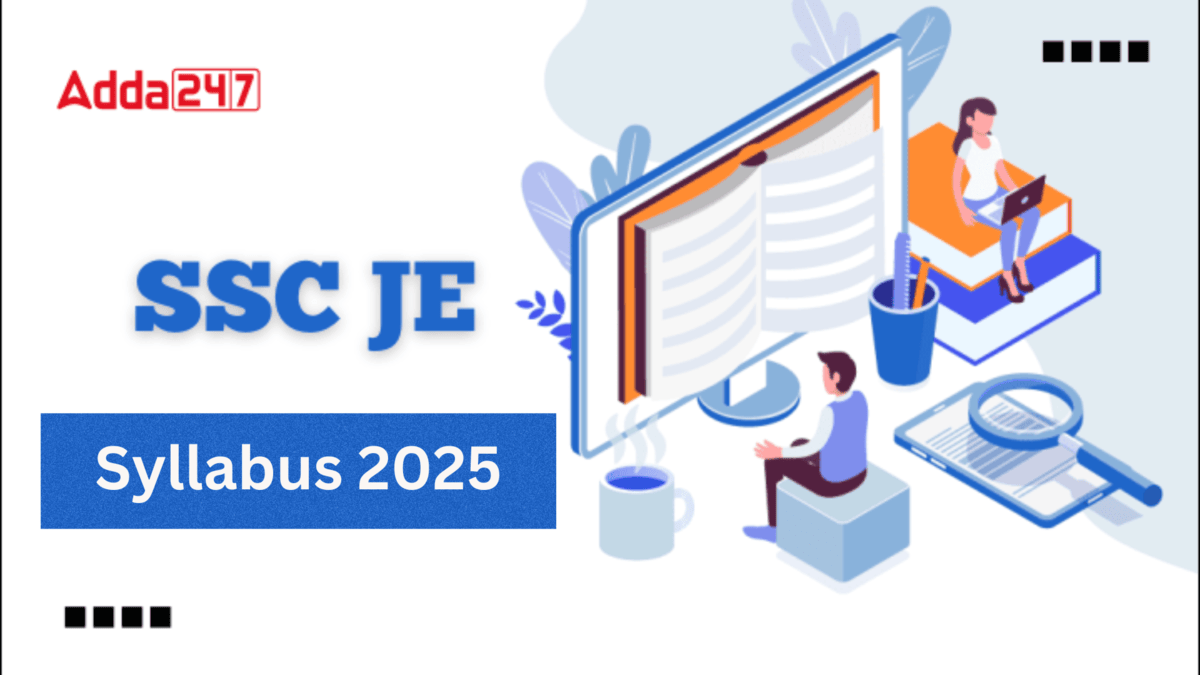
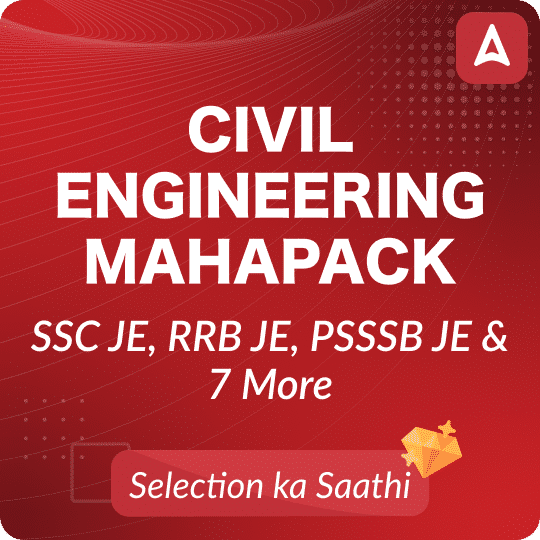
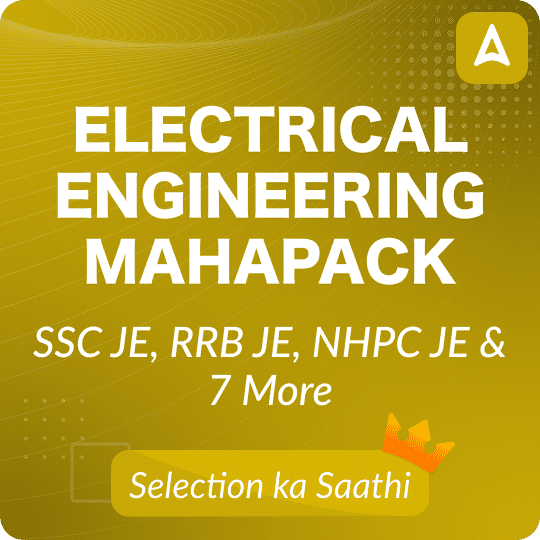
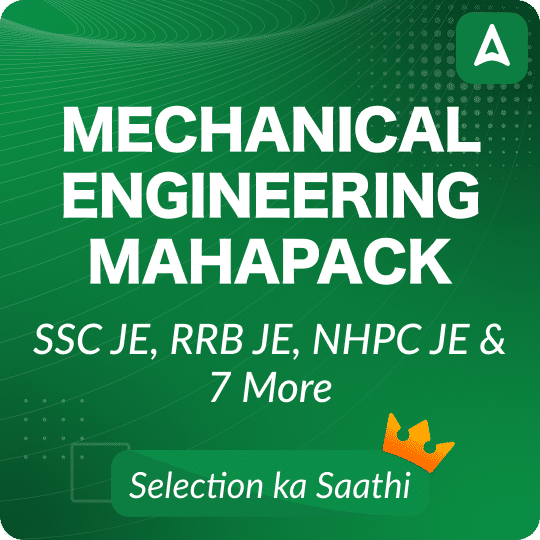

 DFCCIL MTS Syllabus 2025, Exam Pattern
DFCCIL MTS Syllabus 2025, Exam Pattern
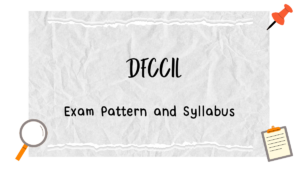 DFCCIL Syllabus 2025 and Exam Pattern fo...
DFCCIL Syllabus 2025 and Exam Pattern fo...
 Patna High Court Syllabus 2025 and Exam ...
Patna High Court Syllabus 2025 and Exam ...

